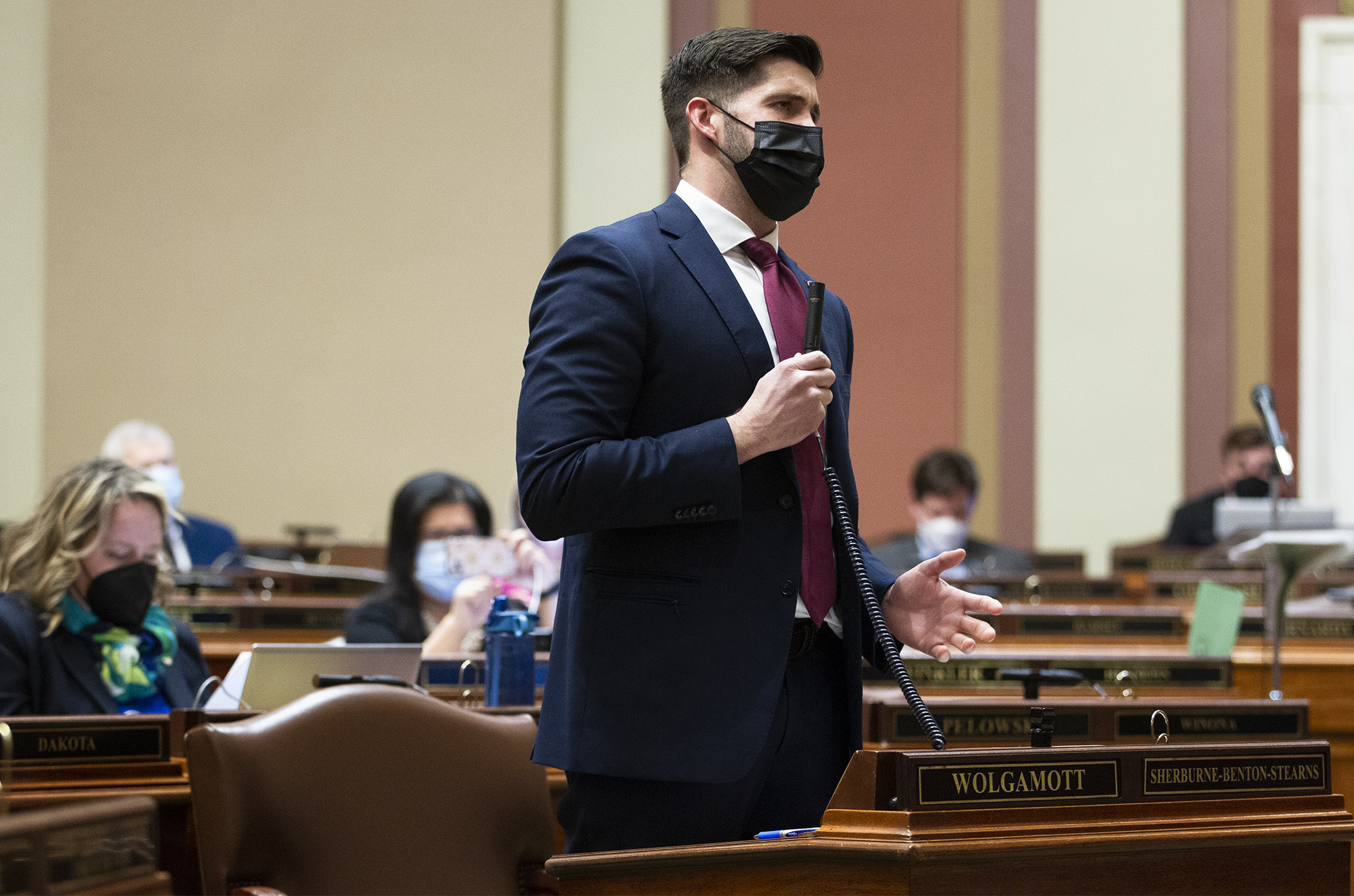Extended COVID-19 presumption for frontline workers passes House, heads to governor

Frontline workers would see their presumed COVID-19 workers’ compensation coverage extended to 2023 via a bill going to the governor.
The House passed HF1203, as amended by the Senate, 124-8. It would extend current law presuming that many essential and front-line workers that contract COVID-19 did so during the course of their employment and are covered by workers’ compensation insurance.
The Senate passed the bill 66-0 earlier in the day.
The presumption expired on Dec. 31, 2021, but under the new extension, workers would be covered until Jan. 13, 2023.
“For the past month, we’ve been asking over 183,000 of our public safety, health care, child care workers to serve our communities on the front lines of this pandemic without any guarantee that they will receive compensation if they contract COVID-19,” said Rep. Dan Wolgamott (DFL-St. Cloud), who sponsors the bill with Sen. Jeff Howe (R-Rockville).
Workers covered under the presumption include peace and police officers; firefighters; paramedics; emergency medical technicians; health care providers, nurses or assistive employees in a health care, home care, or a long-term care setting who work with COVD-19 patients; correctional officers or security counselors at correctional facilities; and child-care providers who are required to provide child care for the children of first responders and health care workers under the governor’s Executive Orders.
The new deadline allows for the 2023 Legislature to further extend the deadline, if needed.
Wolgamott, who discussed a similar bill, HF2656, on Monday with the House Labor, Industry, Veterans and Military Affairs Finance and Policy Committee, hoped to have the expected new law backdated to Jan. 1, 2022. The retroactive portion is not included in the bill being sent to Walz.
“As a result of a compromise with the (Workers’ Compensation Advisory Council), this bill does not contain a retroactive presumption for the thousands of front-line workers who have contracted COVID-19 since Jan. 1 of 2022,” Wolgamott said. “We cannot allow these workers and their families to be financially exposed because they happen to contract COVID during the gap between the sunset and active dates.”
Wolgamott said he would be introducing new legislation later to close that gap in coverage.
According to Wolgamott, the law has covered an approximately 22,573 workers, costing just under $20 million. He said the initial projections were costs up to $500 million.
Related Articles
Search Session Daily
Advanced Search OptionsPriority Dailies
Legislative leaders set 2026 committee deadlines
By Lisa Kaczke Legislative leaders on Tuesday officially set the timeline for getting bills through the committee process during the upcoming 2026 session.
Here are the three deadlines for...
Legislative leaders on Tuesday officially set the timeline for getting bills through the committee process during the upcoming 2026 session.
Here are the three deadlines for...
Latest budget forecast projects nearly $2.5 billion surplus, but red ink down the road
By Mike Cook Three weeks before Christmas, state budget officials provided some merriment to Minnesotans. However, Grinch-like transformations lurk.
Released Thursday, the November ...
Three weeks before Christmas, state budget officials provided some merriment to Minnesotans. However, Grinch-like transformations lurk.
Released Thursday, the November ...